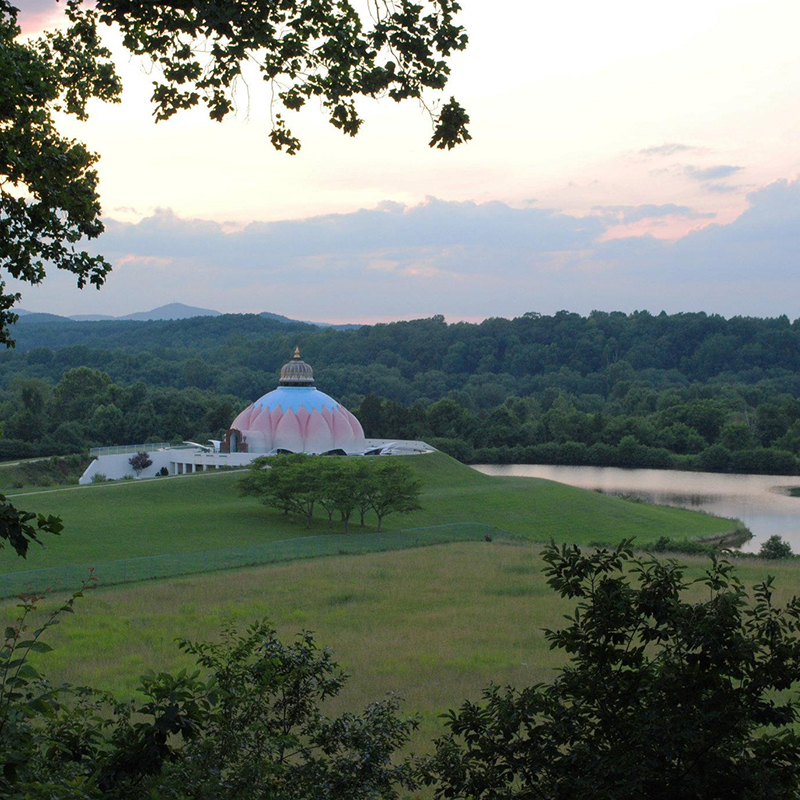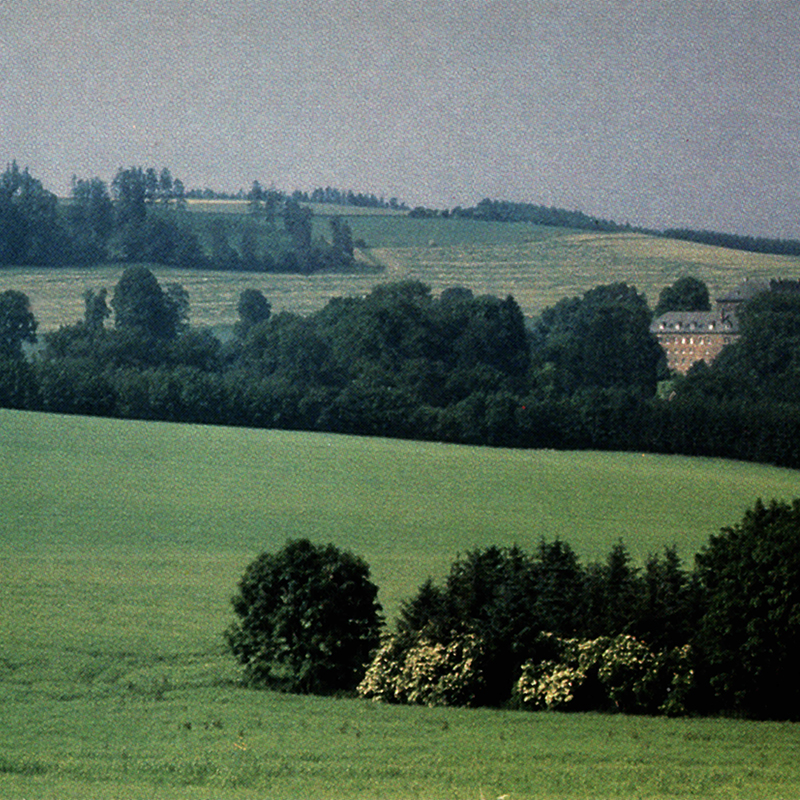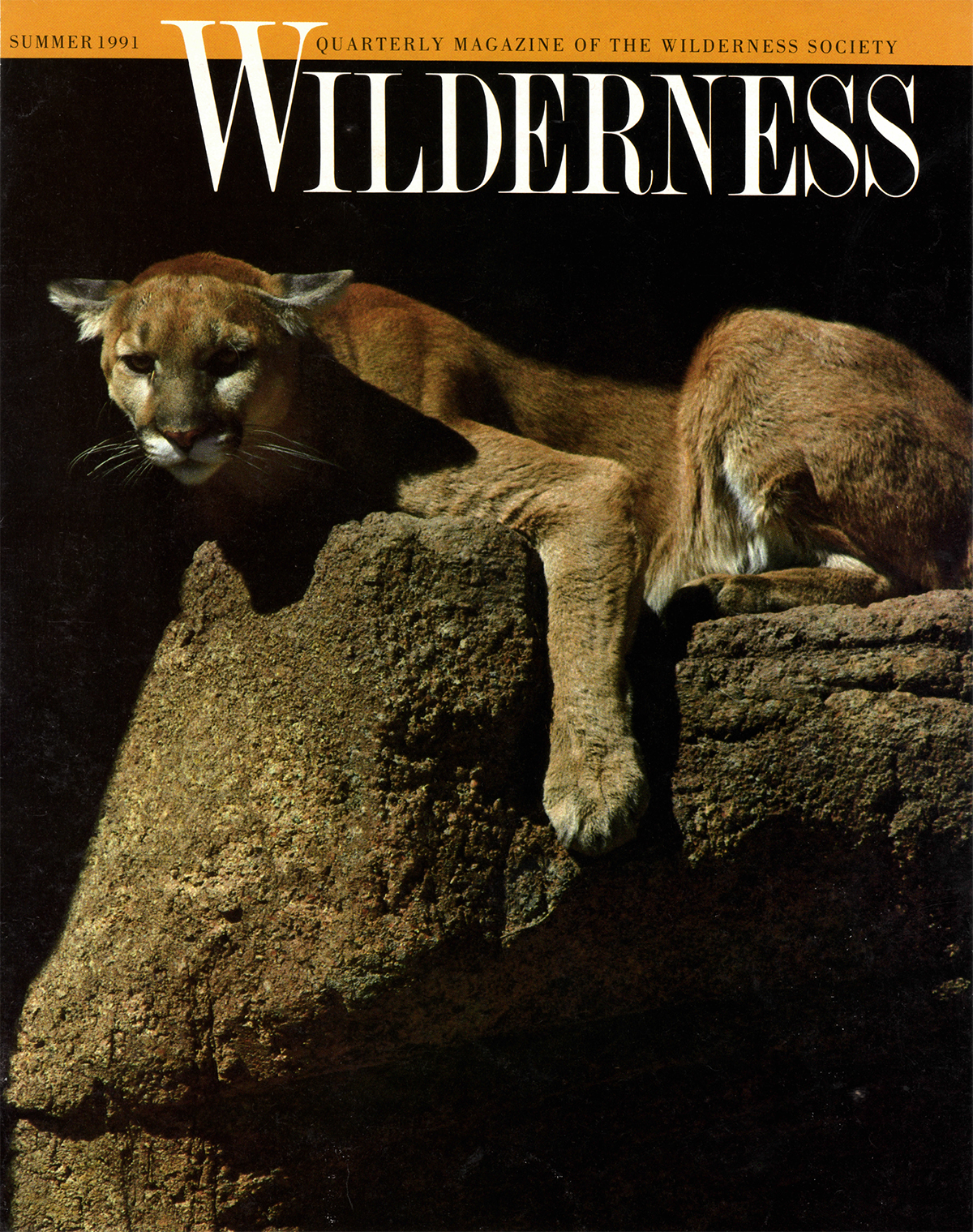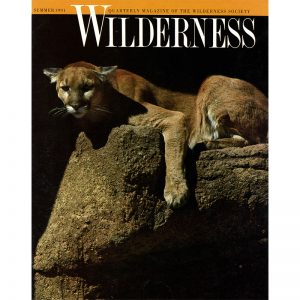
In Rural Virginia, Yogaville is Simply Divine
06/24/1990
In the Fatherland of Forestry: Baron Alexander von Elverfeldt and Castle Canstein
05/01/1992
View full essay in PDF format
“Concepts of Cougar” was published in the Wilderness Magazine, summer 1991.
“In the beginning was the lion. Images of leonine power are as ancient as the first scratchings on cave walls and as ambiguous as the Sphinx. Lions roam through the Bible, emissaries sometimes of God, sometimes of the Devil. From Aristotle’s attempts at empirical description to the fanciful symbolism of medieval bestiarists, the lion embodied both the noblest and the most savage traits of humankind.
Lions had been gone from Europe for more than a millennia by the time Europeans discovered the New World. Bears, wolves, and several species of small wild cats remained, so the analogous animals on new shores were easily comprehended. Large cats, however, were completely foreign. From Columbus on, explorers wrote of lions, leopards, tigers, ‘ounces,’ panthers and ‘pards,’ confounding real and mythical animals of the Old World with the jaguars, mountain lions, and ocelots that are unique to the New.”


